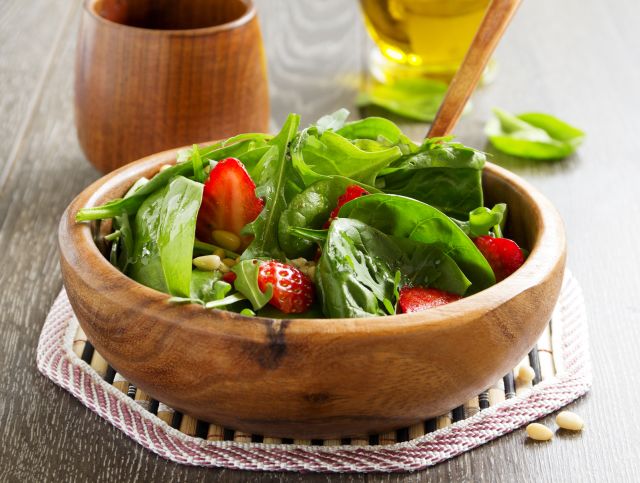Environmental toxins are often bad news for your liver. But you could safeguard your health by eating spinach.
Chlorophyll and chlorophyllin, two substances found in spinach and other leafy greens, may help reduce the body's absorption of aflatoxin, a common but potentially harmful type of environmental toxin.
Toxin Takedown
Aflatoxin is a problematic substance produced by the molds that grow on certain food crops, like corn, cottonseed, peanuts, tree nuts, and wheat. And since aflatoxin is known to cause liver damage, the FDA sets limits on how much can be in our food sources. But you may be able to add an extra measure of protection by eating leafy greens. When volunteers in a study were exposed to very small, safe doses of aflatoxin, less showed up in their systems if they were also given a little bit of chlorophyll or chlorophyllin. (For what veggies does going organic make the most sense? Find out here.)
Chloro Chemistry
Researchers believe chlorophyll and chlorophyllin may form some sort of beneficial bond with aflatoxin that reduces intestinal absorption. In addition to spinach, other good sources of chlorophyll include broccoli, parsley, green beans, kale, arugula, and leeks.
Did you know? Just one extra serving of veggies a day could lower your risk of cancer.






